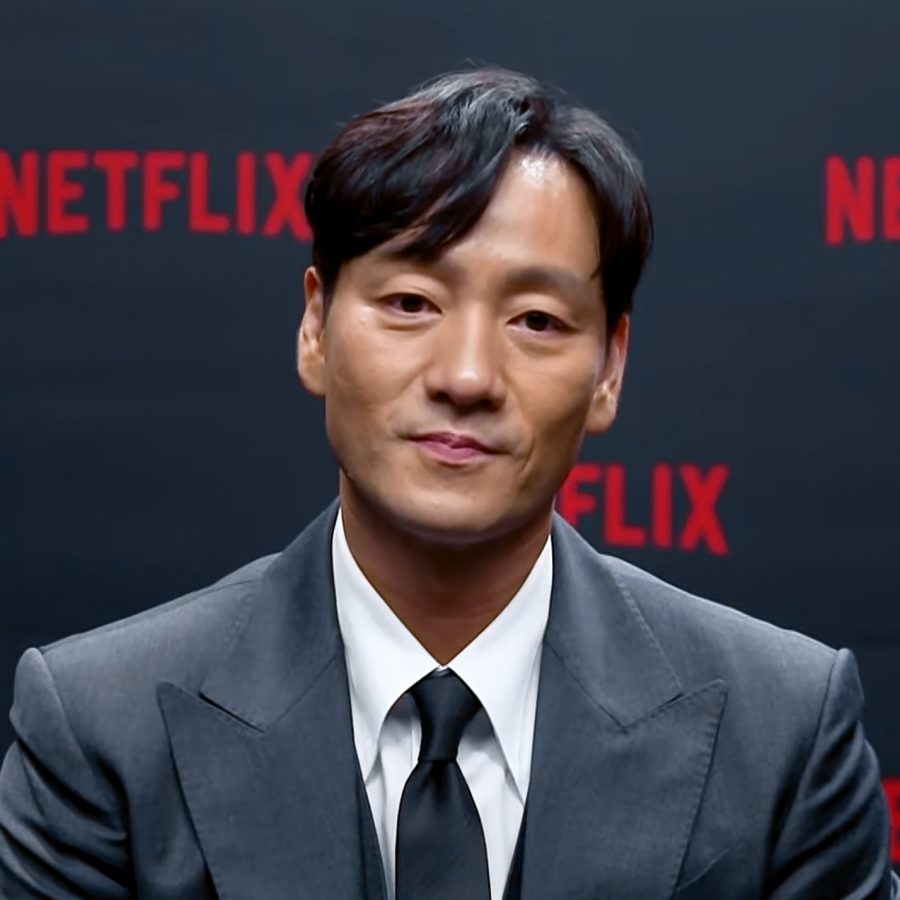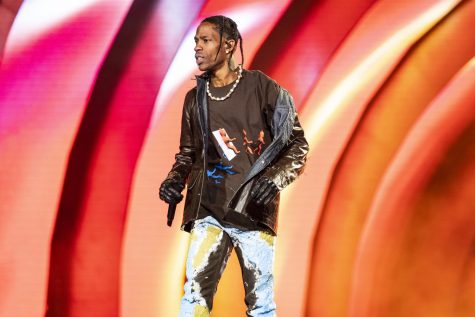Squid Games’ Use of Violence Brings Up Phycological Concerns for Children and Teens
The violent first season of Squid Games worries many parents and psychologists
Squid Game actor Park Hae-soo, who plays Cho Sang-Woo—who’s violent actions bewildered many fans, poses for a photo at an Elle Taiwan interview.
Full of curiosity, Player 324 enters the arena with confidence. Straight ahead lies a massive Korean Doll. “Green Light,” Player 324 sprints towards the doll. “Red Light,” he stops, but loses his balance. Silence falls as Player 250 gasps in horror at the puddle of red. Hwang Dong-hyuk’s Squid Games’ extreme violence reportedly has physiological effects on some of its viewers.
The first season was released in September 17, 2021, reaching a total revenue of 891.1 million dollars and 111 million viewers in its first week—the record for the most viewed show on Netflix.
Dr. Robin Gurwitch, a psychologist at Center for Child and Family Health and an expert in Psychiatry and Behavioral sciences, warns families to monitor what their kids are accessing.
“Be aware of the content your children are accessing online and that you talk to them about NOT playing violent ‘games’ at school,” Gurwitch said.
Some argue the violence in games and in movies are damaging because it does not serve a larger message.
“First, the show relies heavily on graphic violence. Where it could have used this violence to construct an original view of the growing inequality, debt, and class strife in South Korea and abroad, “Squid Game” uses gore to serve as nothing more than an (admittedly effective) shock factor” Bliss Han quotes in disdain.
Still others argue that this different vision of violence can become normalized in an average child’s mind. Miles Larsen, a kindergarten teacher, worries this may decrease sensitivity in younger children as parents turn a blind eye.
“After the first episode,I was deeply disturbed because of the amount of gratuitous killings in this show, and it just got worse from there,” Larsen said on Twitter. “Not to mention the fact that the plot was too shallow even for a child, which meant the kid in my class was probably watching this because HE ENJOYED THE VIOLENCE. I was incredibly disturbed and I called his parents, but they were FINE [ML1] with disturbing their child into a state that thinking violence was okay.”
Some kids and teens may enjoy life-threatening situations, but others are compelled to watch the famous cast.
“Okay, I’m definitely gonna watch this just for him lol,” Twitter user Jessica Smith replied to a picture of HeYeon Jung, who plays Kang Sae-byeok in Squid Games.
While young viewers mix their entertainment with violence, parents should be on the lookout for red flags in content.
“The number one influence on kids’ media consumption is how their parents think and act regarding media…Doing research about TV shows, movies, or games before your kids watch, play, and interact with them will go a long way in helping them avoid iffy stuff,” Common Sense Media’s parenting editor, Caroline Knorr, said.


